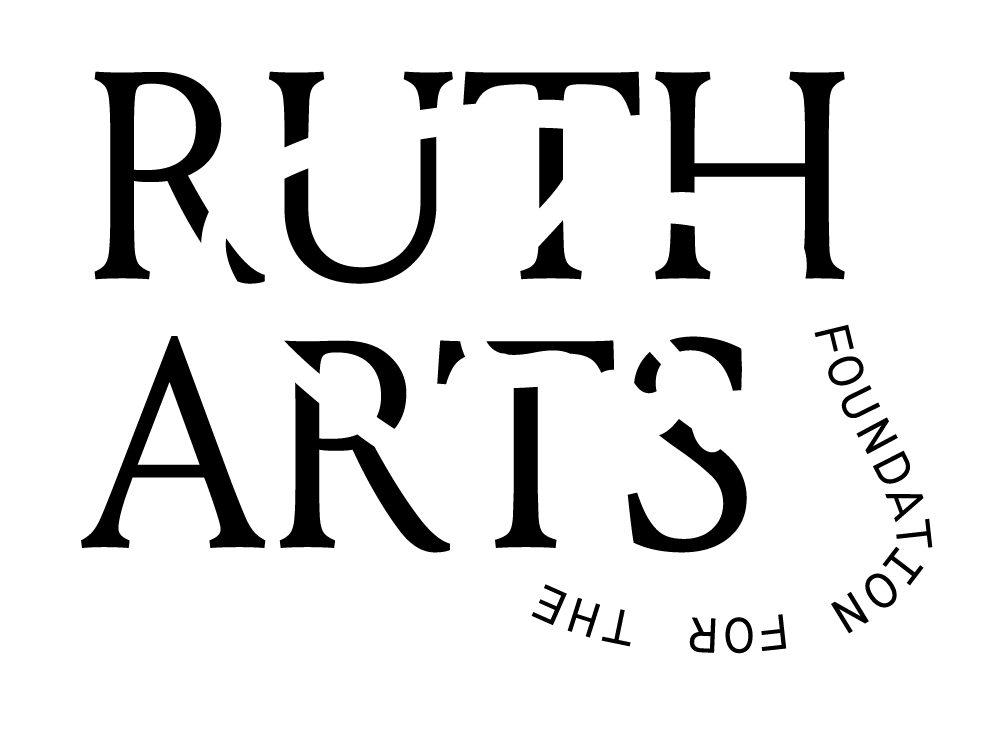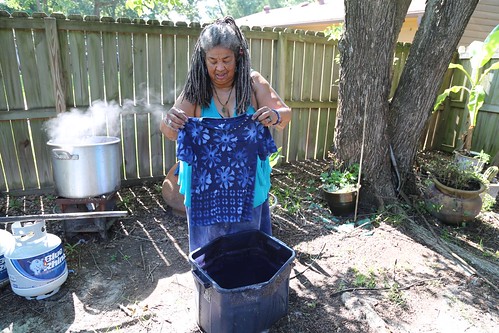Arianne King Comer: IBILE! Ancestral Call in Cloth
IBILE! Ancestral Call in Cloth, is the latest iteration of a CALL & RESPONSE residency we began with artist and indigo advocate Arianne King Comer in 2017. Over the years, King Comer has collaborated with several of her fellow CALL & RESPONSE artists, including Portia Cobb, Reggie Wilson, Scott Alves Barton, and Daniel Minter. She is also a member of the HOME Refugee Steering Committee.
This summer, Comer joins for a two-week residency at Lynden, where she will resume her all ages, open-air, indigo-dyeing studio, inviting groups and individuals to join her at the dyeing vat as she relates the history of indigo and teaches different resist-dyeing methods, particularly traditional batik, adire (Yoruba), and shibori (Japanese) techniques of designing on cloth.
While at Lynden, Comer will gather the artists and community members who participate in Lynden’s programs—CALL & RESPONSE, HOME, the Innovative Educators Institute--for workshops. Comer's residency will intersect with Pulang Balik, Kim Khaira's residency that focuses on her personal art practice and work with Milwaukee's refugee communities.
Comer's studio will be open for drop-in dyeing during the HOME Celebration of Community, Culture & Citizenship on August 17.
Open Studio Schedule 2024
Pre-registration required. Click here to register online.
Tuesday, August 6, 2024, 10:30 am-12:30 pm
Tuesday, August 6, 2024, 1:30-3:30 pm
Saturday, August 10, 2024, 10:30 am-12:30 pm
Saturday, August 10, 2024, 1:30-3:30 pm
Participants are welcome to use our muslin yardage or to bring garments from home to dye, with a limit of two items (pieces of yardage or garments) per person. Silk scarves, T-shirts, and other items will be available for purchase if you want to undertake a more advanced project.
About the Artist
Arianne King Comer is an art consultant, indigo and community arts advocate, lecturer, teacher, and textile artist. She is interested in the cultural traditions of the African Diaspora, and much of her research focuses on indigo cultivation and dyeing. Comer travels with wax pans, imprinting stamps from the countries that practice batik, a collection of dyes--including indigo--for cotton and silk, and examples of textiles from her collection. As an indigo advocate, she shares a native South Carolina indigo plant and several films on the indigo process in various countries, including the iconic Daughters of the Dust. Indigo has an ancient history and was found in many different parts of the world, but in the 18th century the Sea Islands of South Carolina were a center of indigo production, and Charleston exported vast amounts of indigo. (Along with rice and cotton, indigo formed the basis of South Carolina’s wealth.) Indigo was the foundation of many West African textile traditions, where women, in particular, were known for their dyeing expertise, and enslaved West Africans worked the labor-intensive indigo plantations.
Arianne King Comer's residency was made possible, in part, with funds from the Chipstone Foundation, the Greater Milwaukee Foundation, and the Ruth Foundation for the Arts.
 |
 |
 |

